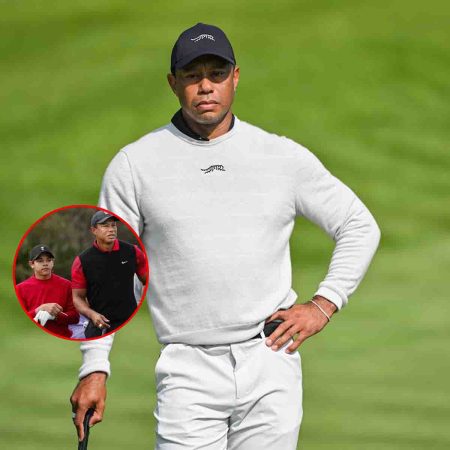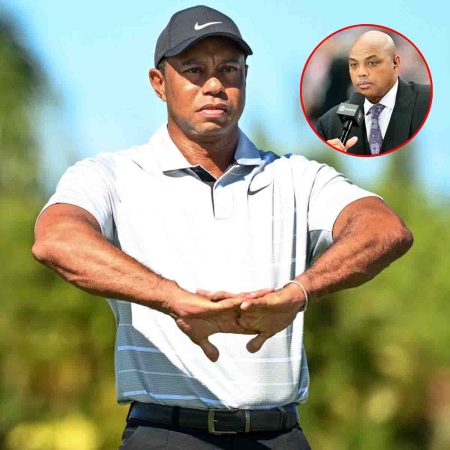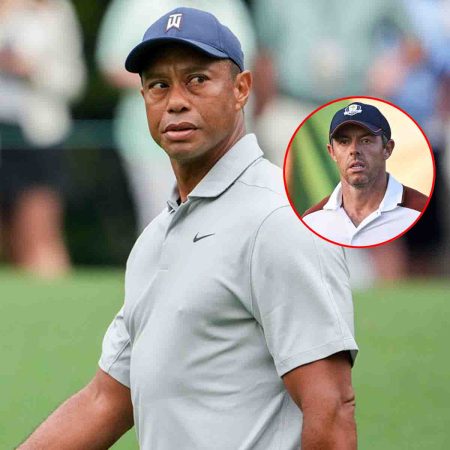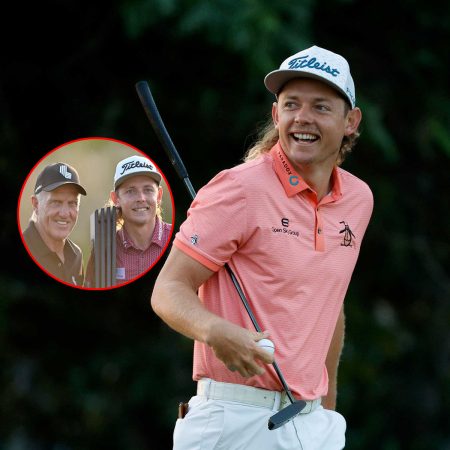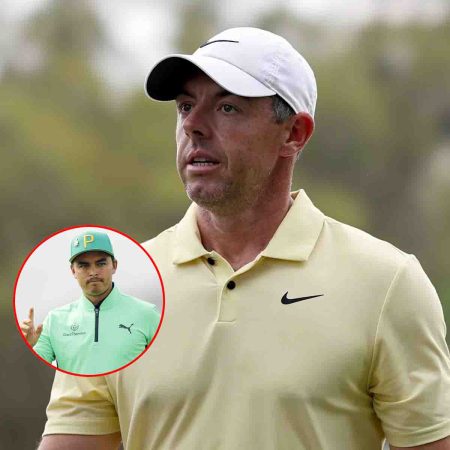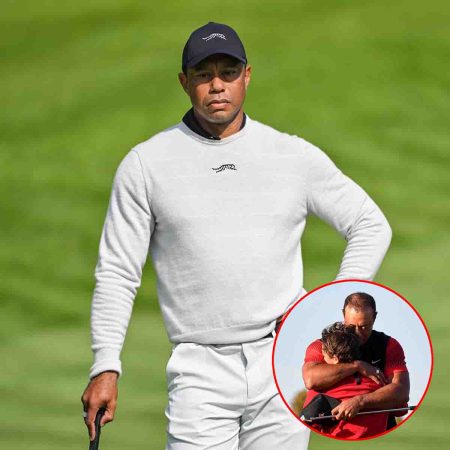Trades and free agency signings have been the way of the world in the NBA over the last 30 years. Teams and front offices are constantly searching for ways to improve their team through the trade market, whether it be a deal for a big-name player or for draft capital and future investments. The NBA trade market is always buzzing, and a move can be made anytime. However, that move doesn’t always work out for a team, and it certainly is never a guarantee to work out for the player.
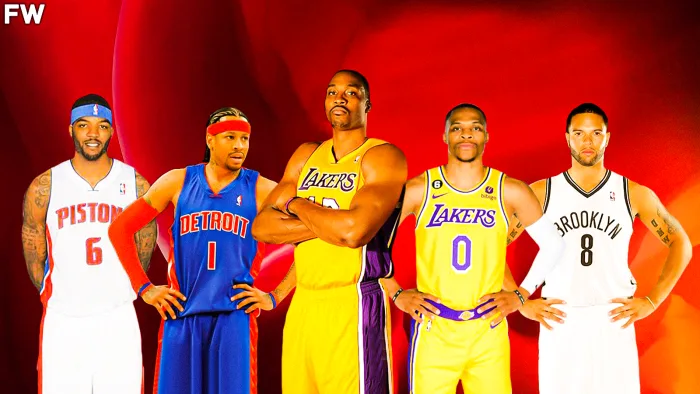
The conversation today will be about star players who had some of the best years of their careers with one franchise and immediately declined in a big way once they were traded elsewhere. These players were among the most elite at their positions before being shipped away and hitting a decline that ultimately led to the end of their careers or let them fade into obscurity. It takes absolutely nothing away from what they accomplished, but these deals accelerated the inevitable fall of some great players’ careers.
These are 10 NBA players whose careers were ruined by trades.
10. Russell Westbrook
Credit: Gary A. Vasquez-USA TODAY Sports
We could go on for days about Russell Westbrook’s peak days with the Oklahoma City Thunder. He was an MVP, averaged a triple-double for an entire season more than once, and became one of the game’s best point guards. However, this isn’t about his days with the Thunder. For the 2020-21 season, Westbrook was a member of the Washington Wizards, where he averaged 22.2 PPG, 11.5 RPG, and led the NBA in assists with 11.7 APG. It was yet another historical season for Westbrook under his belt.
After the season had concluded and the Milwaukee Bucks were crowned champions, a splash was made that offseason by the Lakers led by LeBron James and Anthony Davis. The team acquired Westbrook in a trade that many didn’t see working from the moment it was announced. What proceeded to happen was disgusting as NBA fans everywhere looked to blame one person for their losses and struggles, and of course, that person was Russell Westbrook. Now sharing the court with James and Davis, Westbrook’s numbers dipped to 18.5 PPG, 7.4 RPG, and 7.1 APG with 3.8 turnovers. Fans harassed him and his family, they called him names, and they basically ran him out of town to the point where no one thought he could play anymore. He has another starting job now, but even still, his reputation has been tainted forever despite being an all-time great point guard in NBA history.
9. Allen Iverson
Credit: Rick Scuteri-USA TODAY Sports
Allen Iverson is one of the biggest icons that the NBA has ever seen. During the 2000s, Allen Iverson set the NBA on fire as a 6’0’’ shooting guard who was fearless in his pursuit of getting buckets and took home four scoring titles as well as an MVP. After his time with the 76ers had run its course, Iverson was sent to Denver, where he continued to be one of the best players in the NBA. In his two-and-a-half seasons with Denver, he averaged 25.6 PPG and 7.1 APG and was among the best shooting guards in the league still.
After Denver, Iverson would be traded and recycled throughout the NBA despite clearly being able to still play at a high level. Iverson would spend his last two seasons in the NBA with the Nuggets, Pistons, Grizzlies, and Sixers again. During this time, he was still just 33-34 years old, averaging 16.2 PPG and 4.7 APG during that time. At his age and the way he was performing just one season before being dealt to Detroit, the only explanation for his decline is that the move and the constant rifts between him and coaches began to take their toll.
8. Lance Stephenson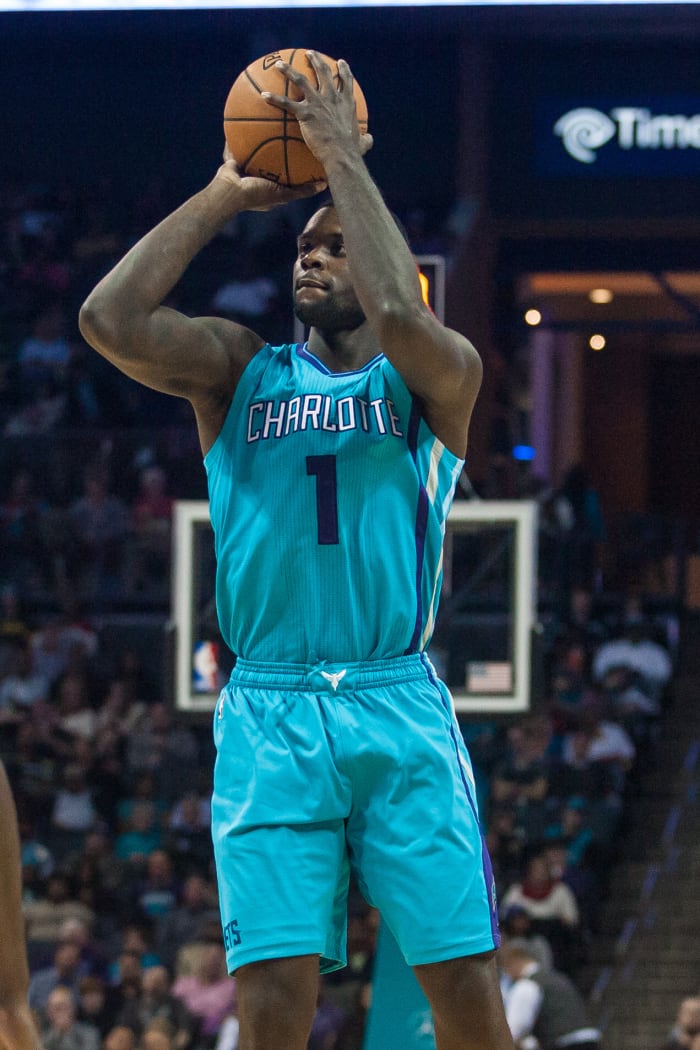
Credit: Jeremy Brevard-USA TODAY Sports
Lance Stephenson was by no means an All-Star or star during his playing days with the Indiana Pacers early in his career, but he did make an impact on their team. He was a great defender and facilitator, as well as a playmaker when Indiana needed him to be. He peaked for them in 2014 when he averaged 13.8 PPG, 7.2 RPG, and 4.6 APG in 78 starts and was a big factor in helping them reach the Eastern Conference Finals.
He would sign a free agent deal with the Hornets, where he would once again excel at the less notable things like rebounding and playmaking. The Hornets then traded Stephenson inexplicably to the Clippers and thus began the downfall of Stephenson’s NBA career. By the end of 2019, Stephenson was playing his basketball in China after being sent across the league more times than Trevor Ariza via trades. The real mistake here was Stephenson himself leaving the Pacers in 2014. He still could have been a good player for the Hornets, I believe, if they had only given him a chance.
7. Josh Smith
Credit: Tim Fuller-USA TODAY Sports
During the 2000s and 2010s, Josh Smith was one of the most electrifying and best forwards in the game. He played nine seasons with the Atlanta Hawks and averaged over 18.0 PPG and 8.0 RPG at his peak. Smith helped the Hawks reach the playoffs six times in nine seasons with the team as well, and although he never became an All-Star, his importance to those teams can never be questioned.
In 2013, Smith would be traded to the Detroit Pistons in one of the most talked about deals that transpired that summer. Smith had a decent first season with Detroit, averaging over 16.0 PPG and over 6.5 RPG. After that season, his production dropped significantly to below 15.0 PPG, and he clearly looked check out from Detroit and Houston after his deal away from Atlanta. By 30 years old, Smith was headed to China to play out his basketball career which is about as low as it gets after a trade goes down.
6. Kemba Walker
Credit: Bob DeChiara-USA TODAY Sports
Kemba Walker’s early career is something out of a movie. Even dating back to college in his days with UCONN, Walker always had a flair for the dramatic and was one of the most explosive and shifty point guards in basketball. During his eight seasons with the Hornets, he became arguably the best player in franchise history. He recorded the most points and three-point field goals in Charlotte history as well as three All-Star appearances and the only All-NBA Team selection of his career in 2019, averaging 25.6 PPG, 5.9 APG, and 1.2 SPG.
We are now just four seasons removed from that All-NBA Team selection, and Walker has pretty much disappeared from the NBA altogether. Walker would go to one All-Star Game in Boston after being traded in 2019-20 but did not play more than 45 games in a season after that. His numbers dipped to under 19.0 PPG quite rapidly by the time he went to New York, and his career has pretty much tapered off since. He averaged just 11.1 PPG in 2022 in 37 games played. Was it the deal itself that hindered Walker for the rest of his career? Was it the injuries that kept popping up time after time? As we have seen historically, it was most likely a little bit of both, and whatever way you look at it, Kemba Walker was not the same after the trade from Charlotte.
5. Joakim Noah
Credit: Brad Mills-USA TODAY Sports
Joakim Noah is a legend in Chicago Bulls’ history. There are some that would even argue that he is the greatest center in the Bulls’ history. Noah was a defensive mastermind who backed down from no challenge laid before him, whether bigger or smaller than him. Even after Chicago lost Derrick Rose to injury, Noah stepped up and led the Bulls when no one else would take the role. He was named an All-Star twice and earned a Defensive Player of the Year award in 2014, averaging 9.3 PPG, 9.4 RPG, and 1.4 BPG in his nine seasons with the Bulls.
In the 2015 offseason, Noah went to the Knicks in free agency, but it was technically viewed as a sign-and-trade deal. Once he went to the Knicks, the production on both ends of the ball dropped severely. He averaged just 5.0 PPG and 5.2 RPG in his first season with the Knicks. Injuries began to pile up, and Noah couldn’t even last for 50 games in a season. Noah would have been much better off in Chicago, where they knew how and where to use him on both sides of the floor. Instead, his career withered away in one of the worst contracts ever given out in Knicks history.
4. Lamar Odom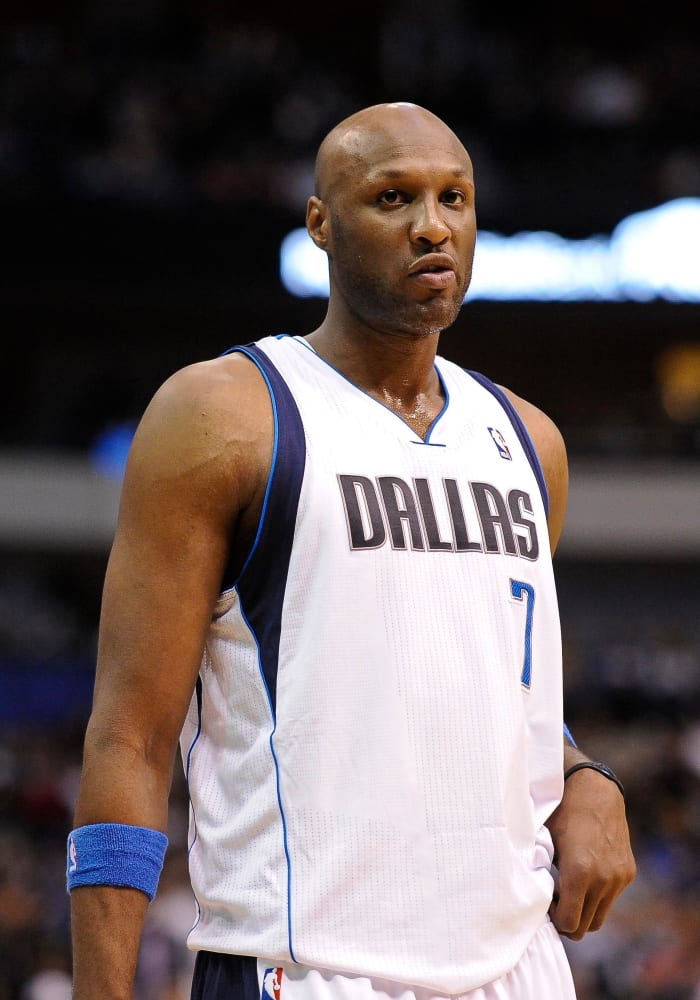
Credit: Jerome Miron-USA TODAY Sports
For years, Lamar Odom was a beloved figure in Los Angeles as one of the unsung heroes for their championships in 2009 and 2010. Odom was even named the Sixth Man of the Year for the 2011 season averaging 14.4 PPG off the bench. Aside from his 15.0 PPG or better, contributing to two rings, Los Angeles embraced Lamar and loved him like he was a homegrown Laker.
This all came crashing down in 2011 when the Lakers reportedly were ready to trade him away in a deal for Chris Paul. The league vetoed the trade, but the damage was done, and Odom wanted out. With Dallas, Odom regressed heavily, and some would say that a broken heart from how he was treated in Los Angeles led him astray. Odom averaged just 6.6 PPG and 4.2 RPG in his lone season with Dallas in 2012. He would play just two more seasons in the NBA before retiring in 2013.
3. Isaiah Thomas
Credit: Kim Klement-USA TODAY Sports
Isaiah Thomas was never supposed to succeed at the NBA level. Standing just 5’9’’ tall, the odds were stacked against him to even make the NBA in the first place. After four seasons with the Kings, Thomas found a real home, or so he thought, in Boston with the Celtics. Thomas would become an All-Star in both 2016 and 2017 while finishing top five in MVP voting in 2017 as well. While averaging 28.9 PPG and 5.9 APG, Thomas gave the Celtics everything he had, including playing through his sister’s tragic death and playing through a hip injury that would later cost him more than one playoff series.
During the 2017 offseason, the Celtics made the decision to trade Thomas to Cleveland in a deal that delivered them Kyrie Irving. From this point on, Thomas’ career was never the same. He would average just 15.2 PPG the following season and 12.2 PPG in 40 games with the Wizards in 2020. He dealt with injuries and a lack of continuity that never let him settle in with another team in any way. From an MVP candidate to a player seeking out 10-day contracts is one of the steepest declines for any player traded in NBA history.
2. Deron Williams
Credit: Anthony Gruppuso-USA TODAY Sports
During the late 2000s and early 2010s, there was a serious debate as to who was the best point guard in the NBA, and Deron Williams was among the top two names mentioned. Williams was an automatic double-double as far as scoring and assists go, as he led the Jazz to some of their best seasons since the Stockton/Malone days. Williams averaged 17.3 PPG and 9.1 APG in his six seasons with the Jazz. He earned three All-Star selections as well as two All-NBA selections before requesting out of Utah in order to compete for a championship.
Williams basically had his choice to either go to New Jersey to play with the Nets or back home to Dallas to play with the Mavericks. He was sent to the Nets during the 2011 season, which is ironic considering the Mavericks became NBA champions that season. Williams, meanwhile, had an All-Star season in New Jersey in 2012 but began to rapidly decline on the court as well as with injuries. By 2016, Williams was averaging just 11.1 PPG and 5.6 APG. Brooklyn was not successful in their hunt for a championship, and Williams chose to join the Mavericks when it was too late, and the championship window had closed.
1. Dwight Howard
Credit: Gary A. Vasquez-USA TODAY Sports
I do not believe there is a player in NBA history who had a worse outcome for a trade than Dwight Howard did. During the 2000s and 2010s, Dwight Howard was at his peak and was one of the best players in the game. He led the Magic on numerous deep playoff runs and even led them to the Finals in 2009. He earned three Defensive Player of the Year awards as well as eight All-NBA Team selections on top of it. Howard was on top of the world but was no longer satisfied with what the Magic could offer him after eight seasons of averaging 18.4 PPG, 13.0 RPG, and 2.2 BPG.
Howard would be traded to the Lakers in the 2012 offseason joining Kobe Bryant and Steve Nash for what was supposed to be one of the most unstoppable lineups ever. After one season and a first-round exit, Howard was traded again to the Rockets, where the steady decline continued until he began to become a backup center at a rapid pace. After his one season in Houston, Howard found himself dipping below 15.0 PPG production yet still a solid rebounder but couldn’t remain with a team for more than one season. Howard would win a championship with the Lakers in 2020 but has since left the NBA and now plays in Taiwan. If I were Howard and could go back, staying with Orlando was the only way to maximize his potential as well as his money.
Source: fadeawayworld



